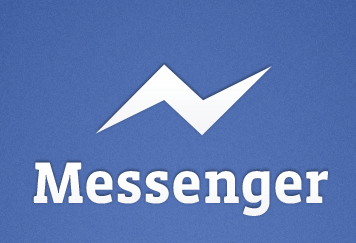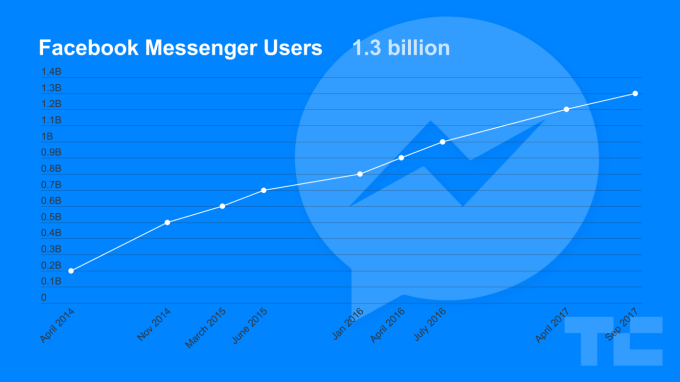You cannot get rid of Facebook messages from the inboxes of individuals you sent them to, however Facebook did that for Mark Zuckerberg and other executives. 3 sources verify to TechCrunch that old Facebook messages they got from Zuckerberg have actually vanished from their Facebook inboxes, while their own replies to him notably stay. An e-mail invoice of a Facebook message from 2010 examined by TechCrunch shows Zuckerberg sent out individuals messages that not appear in their Facebook chat logs or in the files readily available from Facebook’s Download Your Information tool.
When asked by TechCrunch about the scenario, Facebook declared in this declaration it was provided for business security:
 “After Sony Pictures ’ e-mails were hacked in 2014 we made a variety of modifications to safeguard our executives ’ interactions. These consisted of restricting the retention duration for Mark’ s messages in Messenger. We did so completely compliance with our legal responsibilities to maintain messages.”
“After Sony Pictures ’ e-mails were hacked in 2014 we made a variety of modifications to safeguard our executives ’ interactions. These consisted of restricting the retention duration for Mark’ s messages in Messenger. We did so completely compliance with our legal responsibilities to maintain messages.”
However, Facebook never ever openly revealed the elimination of messages from users’ inboxes, nor independently notified the receivers. That raises the concern of whether this was a breach of user trust. When asked that concern straight over Messenger, Zuckerberg decreased to offer a declaration.
Tampering with users’ inboxes
A Facebook representative validated to TechCrunch that users can just erase messages from their own inboxes, which they would still appear in the recipient’s thread. There seems no “retention duration” for regular users’ messages, as my inbox reveals messages from as early as 2005. That shows Zuckerberg and other executives got unique treatment in having the ability to draw back formerly sent out messages.
[Update 4/6/2018: Facebook now states that it prepares to release an “unsend” function for Facebook messages to all users in the next a number of months, and will not let Mark Zuckerberg usage that include anymore till it releases for everybody. One choice Facebook is thinking about for the Unsend function is an expiration timer users might set. It’s disconcerting that Facebook didn’t divulge the retractions or strategies for a Unsend button till required, and rushing to provide everybody the function appears like an effort to peaceful users’ anger over the scenario.]
Facebook prepares to let
everybody unsend messages, will not let Zuckerberg up until then
Facebook talks sent out by Zuckerberg from numerous years ago or older were missing out on from the inboxes of both previous workers and non-employees. Exactly what’s left makes it appear like the receivers were speaking to themselves, as just their side of back-and-forth discussions with Zuckerberg still appear. 3 sources asked to stay confidential from worry of outraging Zuckerberg or burning bridges with the business.
[Update: Recent messages from Zuckerberg stay in users’ inboxes. Old messages from prior to 2014 still appear to some users, showing the retraction did not use to all talks the CEO sent out. More sources have actually come forward considering that publication, stating theirs vanished.]
None of Facebook’s regards to service appear to offer it the right to eliminate material from users’ accounts unless it breaches the business’s neighborhood requirements. While it’s rather basic for corporations to have information retention policies that see them erase e-mails or other messages from their own accounts that were sent out by staff members, they generally cannot eliminate the messages from the accounts of receivers outside the business. It’s unusual that these business own the interaction channel itself and for that reason host both sides of messages as Facebook performs in this case, which possibly calls for a various strategy with more openness than silently pulling back the messages.
Facebook’s power to damage users’ personal message threads might alarm some. The problem is enhanced by the reality that Facebook Messenger now has 1.3 billion users, making it among the most popular interaction energies on the planet.

Zuckerberg is understood to have a group that assists him run his Facebook profile , with some unique capabilities for handling his 105 million fans and consistent ask for his attention. Zuckerberg’s profile does not reveal a button to include him as a good friend on desktop, and the button is grayed out and handicapped on mobile. The capability to alter the messaging inboxes of other users is far more worrying.
Facebook might have looked for to avoid leakages of delicate business interactions. Following the Sony hack, e-mails of Sony’s president Michael Lynton, who rested on Snap Inc.’s board, were exposed, revealing trick acquisitions and technique .

Mark Zuckerberg throughout the early days of Facebook
However, Facebook likewise might have sought to ward off the publication of possibly humiliating individual messages sent out by Zuckerberg or other executives. In 2010, Silicon Alley Insider aka Business Insider released now-infamous immediate messages from a 19-year-old Zuckerberg to a good friend soon after beginning The Facebook in 2004. “yea so if you ever require details about anybody at harvard … simply ask … i have more than 4000 e-mails, photos, addresses, sns” Zuckerberg composed to a buddy. “exactly what !? how’d you handle that a person?” they asked. “individuals simply sent it. i wear’ t understand why … they believe me’… dumb fucks” Zuckerberg described.
The New Yorker later on verified the messages with Zuckerberg, who informed the publication he “definitely” regretted them. “If you’re going to go on to develop a service that is prominent and that a lot of individuals rely on, then you require to be fully grown? I believe I’ve grown and found out a lot,” stated Zuckerberg.
If the objective of Facebook’s security group was to keep a hacker from accessing the accounts of executives and for that reason all their messages, they might have simply been erased on their side the method any Facebook user is totally free to do, without them vanishing from the different receivers’ inboxes. A disclosure of some kind appears sensible if Facebook thought it required to get rid of the messages totally from its servers in case the business’s backend systems we breached.
Now as Facebook encounters increased analysis relating to how it deals with users’ information in the wake of the Cambridge Analytica scandal, the retractions might end up being a larger concern. Zuckerberg is slated to speak in front of the United States Senate Judiciary and Commerce committees on April 10, in addition to your house Energy and Commerce Committee on April 11. They might ask for more info about Facebook getting rid of messages or other information from users’ accounts without their authorization. While Facebook is attempting to communicate that it comprehends its obligations , the black mark left on popular opinion by previous habits might show long-term.
If you have more information on this circumstance, consisting of proof of messages from other Facebook executives vanishing, please contact this post’s author, Josh Constine, by means of open Twitter DMs , josh@techcrunch.com, or encrypted Signal chat at (585 )750-5674.
For more on Facebook’s current difficulties, read our function pieces:
“After Sony Pictures ’ e-mails were hacked in 2014 we made a variety of modifications to safeguard our executives ’ interactions. These consisted of restricting the retention duration for Mark’ s messages in Messenger. We did so completely compliance with our legal responsibilities to maintain messages.”


Kommentare
Kommentar veröffentlichen